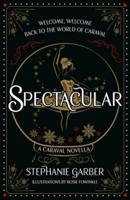Publisher's Synopsis
Excerpt from The Gorleston Psalter: A Manuscript of the Beginning of the Fourteenth Century in the Library of C. W. Dyson Perrins, Described in Relation to Other East Anglian Books of the Period
This East Anglian school, which comprised the great monastic centres The East Ang of Norwich, Ely, Ramsey, and Bury St. Edmunds, and must also be held to iifikiii'i?la'iion include Peterborough, though this was just outside the old East Anglian boundary, developed towards the end of the thirteenth century, and no doubt owed some of its vitality to in?uences from across the Channel, its sym pathy with the vigorous schools of Artois and French Flanders being clearly shown in its fondness for marginal grotesques. It is, nevertheless, like the church architecture of the distric't, essentially and characteristically English. Its main features are the stateliness ofthe writing and the lavishness of the ornament, which is gay in colour, and virile, if somewhat irresponsible, in design. The margins are decorated with borders, half-borders, and a variety of drolleries. Leaves of vine and oak, red or green, and sometimes holly, are largely employed with sprays of daisies, marigolds and pimpernels, and with a long serrated leaf, usually blue, which though sometimes in profile, some times expanded, is seldom disengaged from an irregular background of colour or dotted gold. Birds and beasts are often introduced with much spirit, and if the figure-work has little of the tender devotional expressiveness found in the Apocalypses above referred to, it is nearly always lively and strong, and in more than one book marvellously delicate.
The earliest manuscript which need be mentioned as leading up to the Gorleston Psalter is another splendid Psalter, written about half a cen tury earlier, c. 1250-70, in the collection of the Duke of Rutland.' It is the earliest book that I have seen in which there is a profusion of marginal grotesques. Next comes the first quire of the Tenison Psalter, ' c. 1281-84.
About the Publisher
Forgotten Books publishes hundreds of thousands of rare and classic books. Find more at www.forgottenbooks.com
This book is a reproduction of an important historical work. Forgotten Books uses state-of-the-art technology to digitally reconstruct the work, preserving the original format whilst repairing imperfections present in the aged copy. In rare cases, an imperfection in the original, such as a blemish or missing page, may be replicated in our edition. We do, however, repair the vast majority of imperfections successfully; any imperfections that remain are intentionally left to preserve the state of such historical works.



























